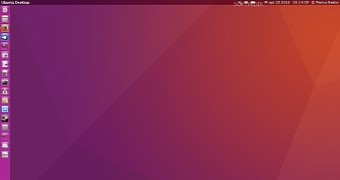Canonical announced today that it decided to delay the upcoming 16.04.4 point release of the long-term supported Ubuntu 16.04 LTS (Xenial Xerus) operating system due to the Spectre and Meltdown security vulnerabilities.
Originally scheduled for release next month on February 15, 2018, Ubuntu 16.04.4 LTS is the fourth of five scheduled maintenance updates for Xenial Xerus, and it was supposed to ship with up-to-date kernel and graphics stacks based on those from the last stable release, Ubuntu 17.10 (Artful Aardvark).
As you may be aware, two severe bugs were unearthed earlier this month, Spectre and Meltdown, discovered to affect billions of devices powered by modern processors. The industry has been working to mitigate these security vulnerabilities, but they're not so easy to fix, so Canonical decided to postpone the release of Ubuntu 16.04.4 LTS to include kernel mitigations for these bugs.
"Due to the ongoing evolution of the fixes for the recently announced Meltdown and Spectre security vulnerabilities, we are delaying the 16.04.4 point release, originally scheduled for the week of February 15," says Lukasz Zemczak, on behalf of the Ubuntu Release Team. "We intend that, when it is released, 16.04.4 will include kernels which mitigate these severe vulnerabilities."
New release date will be announced shortly
At the moment of writing, Canonical did not set a new release date for Ubuntu 16.04.4 LTS, but it said that it shouldn't slip "more than a few weeks." The company also recognized that there's no time right now for any other point-release-critical fixes to be added to the SRU (Stable Release Updates) queue for kernels besides those that mitigate the Meltdown and Spectre security vulnerabilities.
They plan on waiting until the dust is settled a bit before placing the finishing touches on the Ubuntu 16.04.4 LTS (Xenial Xerus) point release. We'll keep you guys updated on any news regarding the release date of Ubuntu 16.04.4 LTS as soon as Canonical announces it. Until then, make it a habit to keep your installations up-to-date at all times if you want to have a secure computing environment.

 14 DAY TRIAL //
14 DAY TRIAL //